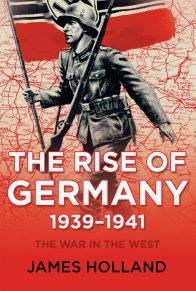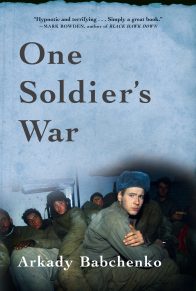These Belgians risked imprisonment or even transportation to a concentration camp because they were infringing the laws passed by the German military administration, according to which any help for the persecuted Jews was to be considered a serious crime.
I was two years old when my father, Hugo Spiegel, set oV for Belgium to Wnd a safe haven for his family. During the anti-Jewish pogroms in 1938, as a respected cattle-dealer in Warendorf, he had been beaten up by the Nazis. His licence, and thus our basic standard of living, were taken away. For my parents that was the signal to leave Germany, with a view to moving back to the region around M”nster once the Nazi horrors had passed. In 1939 my father found lodgings for the four of us in St Gilles, in the home of the butcher Blomme. Shortly after the German invasion of Belgium, my father was arrested in the street and brought to the French internment camp of Gurs, from which he was later deported to Buchenwald, then to Auschwitz and Wnally to Dachau. He miraculously survived the concentration camps. My mother, whose Wrst name was Ruth, was ‘madame R”gine” to her Belgian neighbours. She earned her livelihood by cleaning for Jewish families who at Wrst had been spared deportation because of their Belgian nationality.
My sister Rosa was nine years older than me, and very independent. Our mother had drummed it into her that if she was addressed by a uniformed man she was under no circumstances to say that she was a Jew. One day she went with a friend of my mother’s to a place where food cards were distributed. A man in civilian clothes asked the thirteen-year-old girl if she was a Jew. My sister guilelessly replied that she was. Rosa was arrested, and we never heard anything from her again. According to the deportation lists of Mechelen transit camp, she was, along with 130 other children on 24 October 1942, on the fourteenth transport to Auschwitz.
Now my mother looked for a hiding place for me. After a brief stay in a house in Uccle, where about ten children were living in wretched and unhygienic conditions, an organization gave my mother the address of a farmer in Chapelle-lez-Herlaimont, who was prepared to take in a Jewish child. So at the age of Wve I went to stay with this elderly couple with an adult son, who pretended I was their nephew from Germany. Only the priest in the village, whose services I regularly attended with my Catholic family, knew my true identity. To give me even greater protection against the Nazis, my host parents suggested that I be baptized. But the priest refused. He was not one of those who would use the opportunity to evangelize Jewish children.
I spent three and a half years with those kind farmers. I still clearly remember the American soldiers marching into our little provincial town. My mother had prepared me for that great moment by teaching me the English phrase, “I am a German Jew”. Now, when I stood at the edge of the street amongst the Xag-waving, cheering villagers, a huge tank suddenly stopped, and a black soldier looked down at me. I shouted out my English sentence to him, he bent down to me and lifted me up, kissed me and gave me sweets. I can still remember how terriWed I was, and how glad I was when he put me back down on the street.
“He who saves one human life, saves an entire people.” Many Belgian citizens acted according to this saying from the Talmud during the German occupation. I most devoutly hope that their courage and helpfulness will now be made known through Marion Schreiber’s book, even beyond Belgium’s borders.
Paul Spiegel
President, Central Council of
the Jews in Germany
1 20 January 1943
There was an unusually euphoric atmosphere on Avenue Louise. As if obeying some secret command, people streamed down the wide street to number 453. That cold winter day, they came from all parts of Brussels to witness the unexpected humiliation of the occupying German forces, which was etched in the pale sandstone fa”ade of the apartment building near the city forest. The front of the building was riddled with more than a dozen bullet-holes.
The incredible had happened. On that January morning in 1943, an RAF pilot had dared to Xy into Belgian air space. Keeping low in the sky, he thundered across the wide boulevards of Brussels to the Belgian branch of the Reich Security OYce or Sicherheitsamt, sprayed the building with shells and gunWre, banked rapidly away and vanished.
His aim was good. None of the neighbouring civilian houses was touched. Only the cream-coloured frontage of this notorious apartment block had been devastated. Windows were shattered, metal frames twisted and the balcony railings had been torn apart. Empty black window frames gaped on the upper storeys.
The crowd drifted slowly past the building. None of them dared to stop, and none of them dared to express their delight. Only the people driving past in the over-crowded tram waved triumphantly to the hordes of strollers. They thought they were safe from attack from the grim, grey-uniformed German policemen who stood in a semi-circle, cordoning oV the building. Their whistles and shouted commands, as they tried to make the curious onlookers disperse, were all that disturbed the calm atmosphere.
Youra Livchitz couldn’t take his eyes oV the ruined fa”ade. He hadn’t felt such a feeling of victory for a long time now. The young Jewish physician knew the building’s terrible secrets. Friends of his, Resistance Wghters, had been tortured and interrogated in that building before they disappeared into prison or labour camps. In the cellar, Jewish men, women and children – arrested in the raids carried out by Hitler’s SS lackeys in the Security Police and the Security Service – waited to be transferred to the transit camp at Mechelen. The higher up the building you went, the crueller were the methods employed for the capture and destruction of human beings. It was on the two top Xoors that the Secret Police – the Geheime Staatspolizei, or Gestapo – had their oYces.
That afternoon Livchitz had left work earlier than usual. In the oYces and laboratories of Pharmacobel – where he worked as a laboratory manager, since the occupying Germans had forbidden him to practise the medical profession for which he was qualiWed – the
air-raid was the sole topic of conversation. Was this a sign that Nazi rule was coming to an end? For the Wrst time the Germans had shown themselves to be vulnerable. Was it not possible that the concerted power of the Allies might soon achieve what this daring pilot had managed to do all on his own? Even the evening newspaper, Le Soir, forced ideologically into line by the Nazis, could no longer conceal the desperate state of the German army in the snow and freezing cold on the Eastern Front. The Wehrmacht units, the newspaper reported, were “isolated” at Stalingrad, and the target of “ruthless attacks from the Russians’.
But Youra also heard pessimistic voices. They feared that the humiliated Nazis would react even more violently and intensify their searches and raids to regain their authority of terror. But one thing was certain: the Germans would do anything within their power to ensure that nothing would be written about the pilot’s attack on their headquarters.
The young doctor wanted to see Wrst-hand evidence of the defeat of the hated occupying forces; he wanted to hear what the people in the street were saying, even if he had to take risks to do so, since the Germans were sure to tighten up their checks on individuals. If he proved not to be wearing a yellow star, the remainder of his journey was predetermined: he himself would end up in the cellar of this building, the Nazi headquarters, and from there he would be transported to Mechelen transit camp, where the trains set oV for Poland. But as always, Youra relied on the fact that he bore not the slightest resemblance to the hook-nosed Nazi caricature of a Jew displayed in the posters for the anti-Bolshevik Exhibition, Voici les Soviets, at the Cinquantenaire. Livchitz was tall, athletic and blue-eyed – a type that was very popular with the ladies.
The people here in Avenue Louise, it seemed to the young doctor, were walking taller today than they usually did; they had a calmer, more optimistic look in their eyes. The stiVness of fear had left them. From the excited conversations going on around him, the young doctor learned that the attack must have been carried out by a Belgian pilot, clearly a patriot who knew the area. His precise target had been number 453. And as he Xew over Brussels he had dropped the Belgian national Xag – banned by the Nazis – over the house of a well-known aristocratic family. The hated German police had clearly suVered casualties. The people living in the neighbouring buildings reported that Wre engines and ambulances had been driving back and forth all morning.
Only later was it known throughout Belgium that the raid had been carried out by the thirty-two-year-old Jean de s’lys Longchamp. The Belgian pilot had left his squadron on an RAF reconnaissance mission, to Wre on the Gestapo building.
Suddenly Youra Xinched. Someone had clapped him on the shoulder. It was Robert Maistriau, his old friend from school. The two young men hadn’t seen each other for weeks. Robert had also made the pilgrimage here to witness the disgrace of the German occupiers. Robert, four years younger than his friend, and with wavy blond hair, was unlikely to attract suspicion to Youra as they wandered through the crowd. They were both excited and speculated that this visible defeat of the Germans might be followed by others. And attacks by underground Wghters were on the increase. Wasn’t the mood of the cold and hungry population becoming increasingly hostile to the occupying forces? Robert had impulsively decided to join one of the Resistance movements. He was bored with his desk job with the metals company Fonofer, where he had started working after abandoning his medical studies. He was dying to Wnd some way of doing damage to the Germans. It wasn’t just that everything the Belgians had saved by careful husbandry – food, fabrics or coal – was going to Germany. Now young people were going to be forced to work in German factories to keep the wheels of Hitler’s arms industry in motion. Around this time, Robert often found himself thinking about his father. A military doctor, and originally an ardent admirer of German culture, with its poets, musicians and philosophers, he had lost all his respect for the German nation in the First World War, at the Front at Yser. He considered it particularly barbaric that during their invasion in 1914 the Germans had set Wre to the precious university library in Leuven with all its irreplaceable books and manuscripts. “In one way and another,” Maistriau recalls, “we young people were opposed to the Germans even before the Second World War.”
Robert’s great friend Youra, whom he had admired so much in grammar school, was ahead of him now as well. He was active in the Resistance, he told Maistriau, working as a courier. Because he knew his way around some of the hospitals, he had even, along with some young underground Wghters, helped to smuggle a hospitalized victim of the Gestapo out of the clinic, while dressed in a doctor’s white coat. But unlike his elder brother Alexandre, a convinced Communist who was a member of the armed partisans, Youra still hadn’t joined up with any particular group. As an intellectual free spirit he abhorred all forms of compulsion, and didn’t want to be tied down by any one organization or ideology.
All of a sudden German policemen forced their way into the crowd, some of them with Alsatians straining on their leashes. They had clearly received instructions to break up the gathering. They grabbed a few curious onlookers and marched them oV. High time for Youra to get away. The two school-friends still lived in the same district, near their former grammar school in Uccle. So they took the twenty-minute walk back together.
From the third Xoor of number 453 Avenue Louise, Judenreferent Kurt Asche watched the crowd slowly dispersing. Over the course of the day the Nazi oYcial had come to the window several times to peer out through the shattered panes and down upon the activity below. The sight of such cheerful people sent him into a fury. To avoid being seen, the little man with the pinched expression stayed back in the darkness of his oYce, which had, by some miracle, been unharmed.
Asche was Adolf Eichmann’s representative in Belgium. And as a ‘referent” – an expert in Jewish matters – and an SS Obersturmf”hrer he enjoyed the privilege of an oYce on this magniWcent boulevard, with a view of the park of the Abbaye de la Cambre. That morning, when the plane came roaring down towards the building, several of his other colleagues had gone running to the window to Wnd out where the deafening noise was coming from. Some of them had paid for their curiosity by being seriously injured or even killed.
At around midday a telegram had been sent to Berlin. It informed the Reichssicherheitshauptamt – Reich Security Headquarters, or RSHA – of the attack by “a low-Xying English plane on the Chancellery building”. They reported Wve serious injuries and four fatalities. One of Asche’s good friends had been hit. This was unfortunate for the Judenreferent, because he had got on very well with this colleague from division IVc. Every now and again they had, for a fee, struck aZuent Jews oV the list of deportees and sold them French passports. Who would Wll that post now? the Obersturmf”hrer wondered. He couldn’t possibly aVord his extravagant night-life, his trips to the brothels of Brussels and his alcoholic evenings in the low dives of the city on his salary alone. Asche’s greed exceeded even his anti-Semitism.
He was left cold by the fact that the head of the Security Service, Alfred Thomas, had been fatally injured by a shell while sitting at his mahogany desk. Thomas’s widow in Stettin and his children would now receive the highest compensation from the dependents’ fund in the Party coVers. Asche could not have known that the following day his superior’s widow would bring a third son into the world, G”nther Alfred, born on 21 January 1943.
There was a possibility that the SS Sturmbannf”hrer’s death would give Asche, his subordinate, the chance of the promotion that he so longed for. His ambition was aroused. After all, he had already deputized for Thomas at important discussions in the capital of the Reich, as for example in June 1942 at a discussion with Adolf Eichmann, the architect of the “Final Solution”. At that time he and his colleagues from Paris and The Hague had received an order for “large numbers of Jews from the occupied Western zones to be transferred to Auschwitz concentration camp for use as labour”.
Since then Asche had put his shoulder to the wheel. Nineteen transports and around 16,000 deportees had already left Belgium by now, the most recent train leaving on 15 January. It was as though the “evacuees’, as they were referred to in the jargon of the Nazi bureaucrats, had vanished from the face of the earth. Now Kurt Asche, stepping into Thomas’s shoes, would have to organize the next transport, the twentieth convoy.
Down in the cellar of the elegant building, with its ruined fa”ade, sat a dainty young woman in a nurse’s uniform. The previous night lovely R”gine Krochmal had fallen into the net of the “voleurs de la vie”, as she called Kurt Asche’s manhunters. The twenty-two-year-old was a member of the “Austrian Liberation Front”, a group of Jewish Resistance Wghters who distributed Xyers in an attempt to inform Wehrmacht soldiers in Belgium about Hitler’s true intentions. “Fairly primitive agitation material,” according to R”gine’s then fellow Wghter Hans Mayer, who became famous as a writer after the war under the name of Jean Am”ry: “I have reason to suppose that the grey-uniformed soldiers immediately picked up our duplicated writings, which they found in front of their barracks, and passed them on to their superiors with a click of their heels; and that they in turn, with the same dutiful promptness, passed them on to the security authorities.”
During the night of 20 January, R”gine and her Austrian friends had run oV the copies of their newspaper Truth. As always, she was wearing her nurse’s uniform with its blue bonnet. “That was my best disguise,” she explains, decades after these experiences. “It got me through all the checks, and I wasn’t subjected to any curfews.” At about midnight the young people became aware of a car parked on the other side of the street from their house. That was unusual in this neighbourhood, especially since the Germans had commandeered almost all Belgian cars. It was true that Bobby, the tenant of the apartment, had an Argentinian passport. But if the SS police found their little printing operation, they faced torture and possibly execution.
They hastily hid the precious duplicating machine, their paper and their matrices. Then the two friends escaped through the window facing the garden. R”gine went to bed. When the knock came she answered the door as though she had been woken from sleep. A man had brought her to the Xat, she explained to the two men in their long leather coats, and left her here alone so that she would have a roof over her head for this night at least. R”gine identiWed herself as a Jew. And the men, happy to have found such easy prey, neglected to search the Xat for anything else.
By the early hours of the morning the door of the cellar of number 453 Avenue Louise was opened over and over again to receive other depressed and despairing new arrivals. It was past midnight – when their victims, woken from their deep sleep, no longer had a chance to escape – that the ruthless hunters came into their own.
Shortly after nine o’clock in the morning the noise of gunWre stopped, and R”gine heard the guards running and shouting in the corridor. For a moment she considered escaping. More than Wfty years later she is still wondering whether she did the right thing. “I thought, there’s no point, they’re nearby and they’re furious, they’ll kill you.” She stayed put.
Before the Nazis’ racial laws put R”gine out of work in the summer of 1942, she had Wnished her training as a nurse and midwife. She loved her job. She couldn’t imagine anything Wner than standing by the mothers-to-be and helping babies into the world. And she remembered a night in the hospital at Etterbeek when she, the apprentice nurse, helped to deliver a child along with a young assistant physician. The handsome, dark-haired doctor had made a lasting impression on her. “A man you could have fallen in love with,” she remembers. He was Youra Livchitz.
Copyright ” 2000 by Marion Schreiber. Foreword copyright ” 2000 by Paul Spiegel. Translation copyright ” 2003 by Shaun Whiteside. Reprinted with permission from Grove Atlantic, Inc. All rights reserved.













